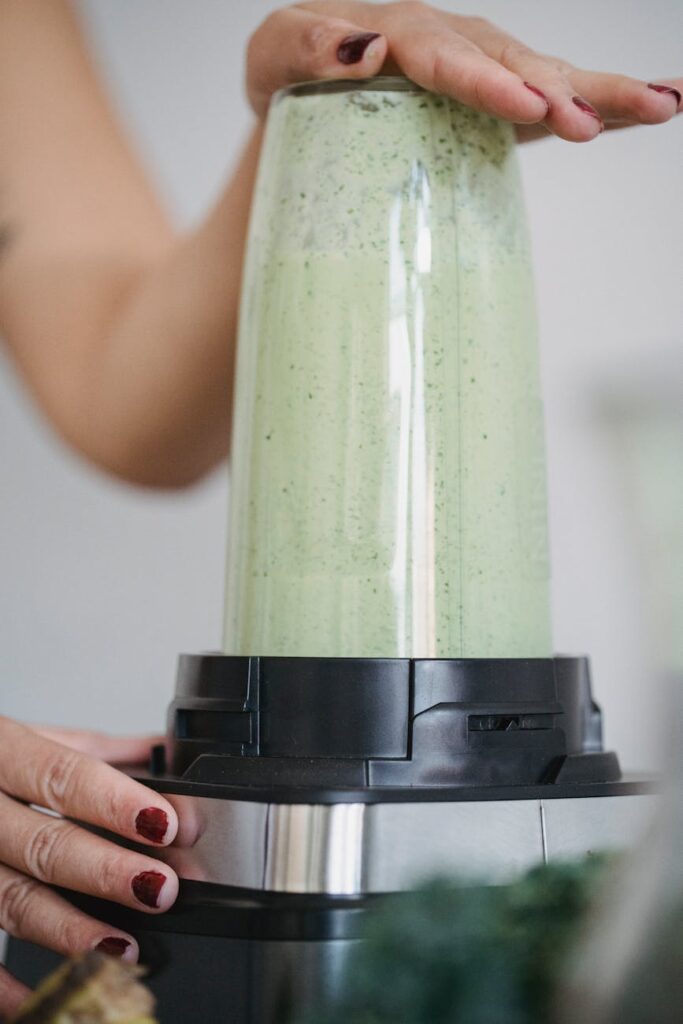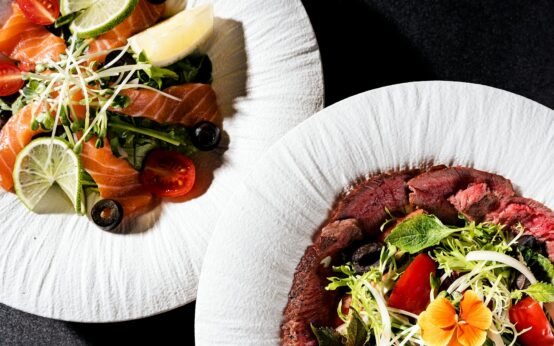Your Ultimate Guide to an Iron-Clad Immune System
Let’s be honest, nobody enjoys being sick. The sniffles, the coughs, the fatigue—it’s a universal experience we’d all rather skip. While there’s no magic pill to guarantee perfect health, you have more power than you think. Your daily choices, especially what you put on your plate, play a massive role in how well your body can fight off invaders. We’re talking about building a resilient, robust immune system, and your kitchen is the best place to start. This isn’t about restrictive diets or weird fads; it’s about harnessing the incredible power of whole foods. We’ve compiled a list of 16 incredible superfoods that boost immunity, making it easy and delicious to give your body the support it craves.
Think of your immune system as your personal army, constantly on patrol. To keep this army strong, motivated, and well-equipped, you need to provide it with the right fuel. That fuel comes from vitamins, minerals, antioxidants, and other compounds found in everyday foods. From the citrus you squeeze into your water to the spices you sprinkle on your curry, every meal is an opportunity to fortify your defenses.
Key Takeaways
- Your diet is a cornerstone of a healthy immune system. What you eat directly fuels your body’s defense mechanisms.
- Focus on a variety of foods rich in key nutrients like Vitamin C, Vitamin E, Zinc, and antioxidants to provide comprehensive support.
- Incorporating these superfoods isn’t about a short-term fix; it’s about building long-term resilience through consistent, healthy eating habits.
- Hydration and a balanced lifestyle, including sleep and exercise, work together with these foods to maximize your immunity.
The Vitamin C Powerhouses
When you think of immunity, Vitamin C is probably the first nutrient that comes to mind. And for good reason! It’s thought to increase the production of white blood cells, which are key to fighting infections. Since your body doesn’t produce or store it, you need daily intake for continued health.
1. Citrus Fruits
This one’s a classic. Oranges, grapefruits, lemons, limes, and tangerines are bursting with Vitamin C. A single medium orange can provide nearly your entire recommended daily amount. Squeeze a lemon into your water, have a grapefruit for breakfast, or toss orange segments into a salad. They’re versatile, they’re delicious, and they’re your immune system’s best friend. The flavonoids in citrus fruits also have anti-inflammatory benefits, which help your body recover faster.
2. Red Bell Peppers
Surprise! Ounce for ounce, red bell peppers contain almost three times as much Vitamin C as a Florida orange. Seriously. They are also a rich source of beta carotene, which your body converts into Vitamin A. Vitamin A is crucial for healthy skin and mucous membranes—your body’s first line of defense against germs. Try them raw with hummus for a satisfying crunch, or roast them to bring out their natural sweetness.
3. Kiwi
These fuzzy little fruits are a nutritional giant. Kiwis are naturally packed with a ton of essential nutrients, including folate, potassium, vitamin K, and, of course, an impressive amount of Vitamin C. Just one cup of kiwi provides almost double the daily recommended intake of Vitamin C. This powerhouse vitamin helps stimulate the white blood cells that fight off infection, keeping your internal army strong.
4. Papaya
Another fruit loaded with Vitamin C, you can find 100% of the daily recommended amount in a single medium-sized fruit. Papayas also have a digestive enzyme called papain, which has anti-inflammatory effects. They have decent amounts of potassium, magnesium, and folate, all of which are beneficial to your overall health and, by extension, your immune system. It’s a tropical treat that does your body a world of good.

Cruciferous and Leafy Green Champions
Greens are the foundation of a healthy diet, and their impact on immunity is profound. They are loaded with vitamins and antioxidants that protect your cells from damage.
5. Broccoli
Broccoli is a true superfood. It’s supercharged with vitamins A, C, and E, as well as fiber and many other antioxidants. The key to keeping its power intact is to cook it as little as possible—or better yet, not at all. Steaming is one of the best ways to preserve its nutrients. The compound sulforaphane, found in broccoli, has been shown to activate antioxidant and detoxifying enzymes, giving your immune cells the support they need.
6. Spinach
It’s not just rich in Vitamin C; spinach is also packed with numerous antioxidants and beta carotene, both of which may increase the infection-fighting ability of our immune systems. Similar to broccoli, spinach is healthiest when it’s cooked as little as possible so that it retains its nutrients. However, light cooking makes it easier to absorb the vitamin A and allows other nutrients to be released from an anti-nutrient called oxalic acid. So a light wilt is perfect!
Spices and Roots with a Punch
For centuries, cultures around the world have used roots and spices not just for flavor, but for their medicinal properties. Modern science is now catching up and confirming what ancient wisdom has known all along.
7. Garlic
You’ll find garlic in almost every cuisine in the world, and for good reason. It adds a little zing to food and it’s a must-have for your health. Early civilizations recognized its value in fighting infections. Garlic’s immune-boosting properties seem to come from a heavy concentration of sulfur-containing compounds, such as allicin. Allicin is produced when a garlic clove is crushed, chopped, or chewed, so make sure to prep it properly to get the most benefit!
8. Ginger
Ginger is another ingredient many turn to after getting sick. It may help decrease inflammation, which can help reduce a sore throat and inflammatory illnesses. Ginger may also help decrease nausea. While it’s used in many sweet desserts, ginger packs some heat in the form of gingerol, a relative of capsaicin. This compound is the source of many of its medicinal properties. A warm cup of ginger tea is not just comforting; it’s a powerful health tonic.
9. Turmeric
You may know turmeric as a key ingredient in many curries. But this bright yellow, bitter spice has also been used for years as an anti-inflammatory in treating both osteoarthritis and rheumatoid arthritis. The magic ingredient is curcumin, which gives turmeric its distinctive color. Research shows that high concentrations of curcumin can help decrease exercise-induced muscle damage and has promising potential as an immune booster.
More Powerful Superfoods that Boost Immunity
The list doesn’t stop there! Your journey to a stronger immune system can be filled with a wide variety of delicious and powerful foods. Let’s explore a few more essential additions to your grocery list.
10. Yogurt
Look for yogurts that have “live and active cultures” printed on the label, like Greek yogurt. These cultures are probiotics, which are healthy bacteria that can help stimulate your immune system to help fight diseases. They keep your gut microbiome—a central hub for immune activity—healthy and balanced. Try to get plain yogurts rather than the kinds that are pre-flavored and loaded with sugar. You can sweeten plain yogurt yourself with healthy fruits and a drizzle of honey instead.
11. Almonds
When it comes to preventing and fighting off colds, Vitamin E tends to take a backseat to Vitamin C. However, this powerful antioxidant is key to a healthy immune system. It’s a fat-soluble vitamin, which means it requires the presence of fat to be absorbed properly. Nuts, such as almonds, are packed with the vitamin and also have healthy fats. A half-cup serving, which is about 46 whole, shelled almonds, provides nearly 100 percent of the recommended daily amount of Vitamin E.
12. Green Tea
Both green and black teas are packed with flavonoids, a type of antioxidant. Where green tea really excels is in its levels of epigallocatechin gallate (EGCG), another powerful antioxidant. EGCG has been shown to enhance immune function. The fermentation process black tea goes through destroys a lot of the EGCG. Green tea, on the other hand, is steamed and not fermented, so the EGCG is preserved. Green tea is also a good source of the amino acid L-theanine, which may aid in the production of germ-fighting compounds in your T cells.
13. Poultry
When you’re sick, chicken soup is more than just a comforting food with a placebo effect. It helps improve symptoms of a cold and also helps protect you from getting sick in the first place. Poultry, such as chicken and turkey, is high in vitamin B-6. About 3 ounces of light turkey or chicken meat contains nearly one-third of your daily recommended amount of B-6. Vitamin B-6 is a vital player in many of the chemical reactions that happen in the body. It’s also essential to the formation of new and healthy red blood cells. Stock or broth made by boiling chicken bones contains gelatin, chondroitin, and other nutrients helpful for gut healing and immunity.
14. Sunflower Seeds
Sunflower seeds are full of nutrients, including phosphorous, magnesium, and vitamins B-6 and E. Vitamin E is incredibly important in regulating and maintaining immune system function. You’ll also find high amounts of selenium in sunflower seeds. Just one ounce contains nearly half the selenium that the average adult needs daily. Several studies have pointed to its role in fighting viral infections.
15. Shellfish
Shellfish might not be what comes to mind for immunity, but some types are packed with zinc. Zinc is a mineral that our bodies desperately need so that our immune cells can function as intended. Varieties of shellfish that are high in zinc include:
- Oysters
- Crab
- Lobster
- Mussels
Keep in mind that you don’t want to have more than the daily recommended amount of zinc in your diet. For adult men, it’s 11 milligrams (mg), and for women, it’s 8 mg. Too much zinc can actually inhibit immune system function.
16. Elderberry
This dark purple berry has been used in folk medicine for centuries to treat colds and the flu. Extracts of elderberry have been found to have antiviral properties, and some studies suggest it can reduce the duration of flu symptoms. While more research is needed, its high antioxidant content makes it a worthy addition to your immune-support toolkit. You can find it in syrups, gummies, and teas, but be sure to choose products with minimal added sugar.
Conclusion: A Diet for Defense
Building a strong immune system is a marathon, not a sprint. It’s about the small, consistent choices you make every single day. Variety is the key to proper nutrition. Eating just one of these foods won’t be enough to help fight off the flu, even if you eat it constantly. Pay attention to serving sizes and recommended daily intake so that you don’t get too much of a single vitamin and too little of others.
Think of your plate as a colorful mosaic. By incorporating these 16 superfoods that boost immunity, you’re not just enjoying delicious meals; you’re actively building a more resilient, healthier you. You’re giving your body the tools it needs to defend itself, so you can spend less time feeling under the weather and more time living your life to the fullest.
FAQ
Can these foods guarantee I won’t get sick?
Unfortunately, no food can offer a 100% guarantee against illness. A strong immune system significantly reduces your risk of getting sick and can help you recover faster if you do. These foods provide the essential nutrients your immune system needs to function at its peak, but they work best as part of a holistic approach that includes good hygiene, adequate sleep, and regular exercise.
How long does it take to see benefits from changing my diet?
You won’t feel a difference overnight. Strengthening your immune system is a gradual process. Consistent healthy eating over weeks and months is what builds long-term resilience. However, you might notice other benefits more quickly, such as increased energy levels and better digestion, which are great signs that you’re on the right track!
Are supplements as good as whole foods?
While supplements can be useful for filling specific nutritional gaps, they can’t replicate the complex synergy of vitamins, minerals, fiber, and phytochemicals found in whole foods. Your body is designed to absorb nutrients from food more effectively. The best approach is always a food-first one, using supplements only when necessary and under the guidance of a healthcare professional.



 How to Meal Prep for the Week: A Beginner’s Guide
How to Meal Prep for the Week: A Beginner’s Guide  Top Foods That Reduce Inflammation: An Easy Guide
Top Foods That Reduce Inflammation: An Easy Guide  Food Allergies vs. Intolerance: What’s the Difference?
Food Allergies vs. Intolerance: What’s the Difference?  Healthy Smoothie Recipes for Weight Loss You’ll Love
Healthy Smoothie Recipes for Weight Loss You’ll Love  Foods That Reduce Inflammation: Your Ultimate Guide
Foods That Reduce Inflammation: Your Ultimate Guide  Foods That Help You Sleep: Your Ultimate Guide
Foods That Help You Sleep: Your Ultimate Guide  Backtest Crypto Trading Strategies: A Complete Guide
Backtest Crypto Trading Strategies: A Complete Guide  NFT Standards: A Cross-Chain Guide for Creators & Collectors
NFT Standards: A Cross-Chain Guide for Creators & Collectors  Decentralized Storage: IPFS & Arweave Explained Simply
Decentralized Storage: IPFS & Arweave Explained Simply  How to Calculate Cryptocurrency Taxes: A Simple Guide
How to Calculate Cryptocurrency Taxes: A Simple Guide  Your Guide to Music NFTs & Top Platforms for 2024
Your Guide to Music NFTs & Top Platforms for 2024  TradingView for Crypto: The Ultimate Trader’s Guide
TradingView for Crypto: The Ultimate Trader’s Guide